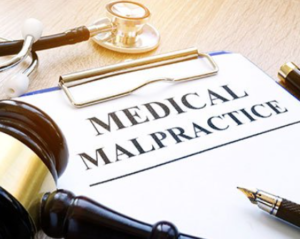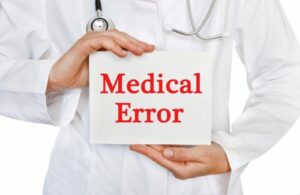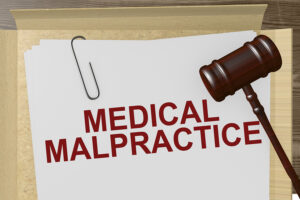Finding the right medical malpractice attorney can be a daunting task. There are so many options that entering the words “medical malpractice attorney” into an internet search engine may yield hundreds, if not thousands, of results in your area. Additionally, the pressure to make the right choice can be intense considering the circumstances.
To make the decision a little easier, here are a few things to consider when looking for a medical malpractice lawyer.
WHERE TO LOOK
People often think they have to search far and wide to find the best medical malpractice lawyer but, in reality, friends and family are very valuable resources.
Many people need the help of a medical malpractice lawyer at some point in their lives, and there’s a good chance that includes someone you know. It may be a bit uncomfortable at first, but asking those in your inner circle is an efficient way to find a lawyer you can trust.
The American Bar Association is another good place to look. You can find a list of lawyers in your area that specialize in medical malpractice on their website. You can also view any attorney’s disciplinary record, including any past citations and suspensions.
Finally, membership in the National Trial Lawyers Association or, even better, the Medical Malpractice Trial Lawyers Association is a good indicator of a lawyer’s qualifications and experience.
SPECIALTIES
Medical malpractice law is one of the most demanding and idiosyncratic legal specialties. Some areas of law only require a passing interest, allowing a dabbling lawyer to adequately represent a client in need. This is not the case with medical malpractice. Even straightforward medical malpractice cases may lie at the intersection of multiple practice areas, including personal injury, health law, and even criminal law.
Additionally, medical malpractice cases often require familiarity with complex medical technology and procedures. In fact, for this reason, many medical malpractice lawyers are either former doctors or employ doctors on their staff to better navigate the medical aspects of each case.
Finding a lawyer who handles medical malpractice cases in general isn’t enough—they need to know how to handle your case.
Medical malpractice law contains many unique subspecialties, each with legal, procedural, and evidentiary idiosyncrasies. A lawyer often focuses on some, but not all, subspecialties.
Many, but certainly not all, medical malpractice cases can be grouped into one of the following subspecialties:
MISDIAGNOSIS
A plaintiff brings a medical misdiagnosis lawsuit if a doctor either improperly diagnosed or failed to diagnose their disease or medical condition.
For example, a person suffering from severe stomach pain goes to a doctor for evaluation and treatment. The doctor examines the patient and makes a diagnosis of acid reflux disease and prescribes an over-the-counter antacid. If the patient later discovers a cancerous tumor was the real source of their pain, they may have a misdiagnosis claim against the doctor.
If a misdiagnosis lawsuit is successful, the plaintiff is entitled to compensation for their pain, suffering, and costs that resulted directly from the misdiagnosis.
SURGICAL ERROR
Surgical error is fairly self-explanatory. If a preventable error or mistake during surgery causes injury or death to a patient, they may have a right to compensation. The error or mistake must have been the result of the surgeon’s negligence or inattention.
BIRTH DEFECT LAW
Every year, thousands of babies are born with internal or external abnormalities known as birth defects. These defects vary in terms of severity, and at their worst can drastically impair a child’s ability to function and develop.
Most defects are unavoidable, but some are caused by a medical professional’s negligence or wrongdoing. For example, if a pregnant woman is prescribed a medication that’s detrimental to the health of her fetus, she may have a medical malpractice case against the prescribing physician or the drug company if her child is born with a birth defect as a result.
In a birth defect lawsuit, a plaintiff seeks damages for the losses and hardship caused by the birth defect that resulted from a healthcare professional’s negligence.
MEDICATION ERRORS
Every year thousands of patients suffer injury or death because of medication errors. These errors can take many different forms. For example, a patient may be prescribed the wrong medication by their doctor, the correct medication may be improperly administered, or a mix-up in the prescription process may result in the patient receiving a medication they weren’t prescribed.
FEE STRUCTURE
To make their services available to everyone, regardless of the client’s financial situation, medical malpractice lawyers offer a contingency fee payment plan.
The contingency fee is popular because the client pays nothing out of pocket for the attorney’s time. The lawyer doesn’t bill the client by the hour; rather, the firm collects the lawyer’s bill as a portion of the damages (or settlement if the case doesn’t go to trial) awarded to the client. The upshot is that the lawyer is only paid if the client wins.
Suffering an injury because a healthcare professional was negligent is tragic. After all, medical providers are people we trust with our well-being and even our lives. Thankfully, victims have the right to seek justice through the legal system by filing a lawsuit against those responsible for their injuries. A verdict in their favor may result in a considerable financial award.
The first step toward seeking compensation is finding the right medical malpractice attorney. An attorney is more than just a professional who interprets statutes and drafts complaints; they can provide candid advice and an empathetic voice during a time of great stress.
Victims shouldn’t hesitate to take action. All states impose a statute of limitations (usually three years or less) on medical malpractice lawsuits. Waiting too long could mean permanently forfeiting the right to legal recourse. If cost is a concern, many medical malpractice lawyers offer a free initial consultation at no out-of-pocket cost to the client.
Spector Law Group



































































































